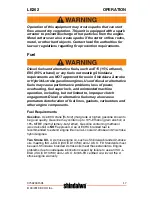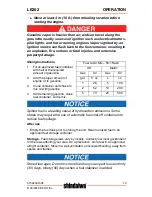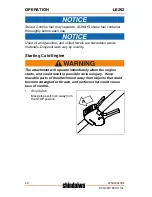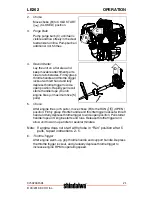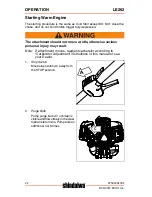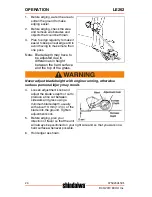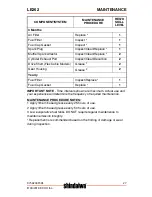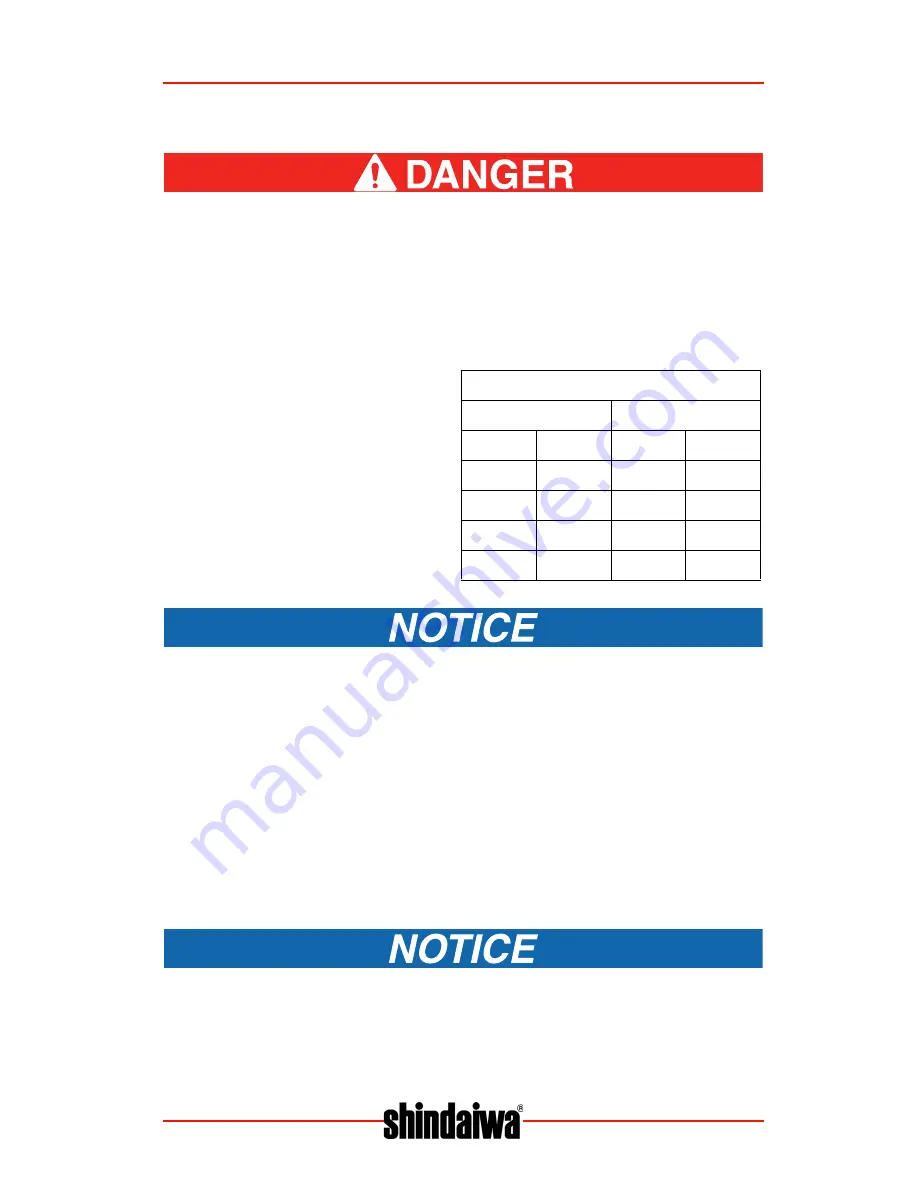
LE262
OPERATION
X7502341501
19
© 03/2019 ECHO Inc.
◆
Move at least 3 m (10 ft.) from refueling location before
starting the engine.
Gasoline vapor is heavier than air, and can travel along the
ground to nearby sources of ignition such as electrical motors,
pilot lights, and hot or running engines. Vapors ignited by an
ignition source can flash back to the fuel container, resulting in
an explosion, fire, serious or fatal injuries, and extensive
property damage.
Mixing Instructions
1.
Fill an approved fuel container
with half of the required
amount of gasoline.
2.
Add the proper amount of
engine oil to gasoline.
3.
Close container and shake to
mix oil with gasoline.
4.
Add remaining gasoline, close
fuel container, and remix.
Spilled fuel is a leading cause of hydrocarbon emissions. Some
states may require the use of automatic fuel shut-off containers to
reduce fuel spillage.
After use
• Empty the fuel tank prior to storing the unit. Return unused fuel to an
approved fuel storage container.
Storage
- Fuel storage laws vary by locality. Contact your local government
for the laws affecting your area. As a precaution, store fuel in an approved,
airtight container. Store in a well-ventilated, unoccupied building, away from
sparks and flames.
Stored fuel ages. Do not mix more fuel than you expect to use in thirty
(30) days, ninety (90) days when a fuel stabilizer is added.
Fuel to Oil Mix – 50:1 Ratio
US
Metric
Gas
Oil
Gas
Oil
gal.
fl. oz.
L
cc
1
2.6
5
100
2
5.2
10
200
5
13
25
500













